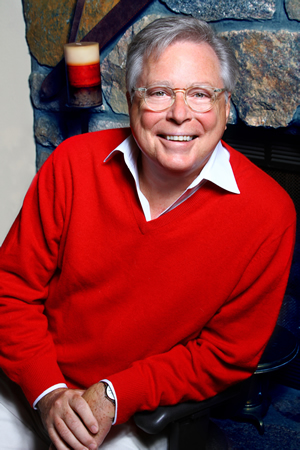While not the best-known 20th-century French composer, Arthur Honegger (1892-1955) was one of “Les Six,” the group of composers which also included Francis Poulenc, Darius Milhaud, and Germaine Tailleferre. His music is notable for his fluency across stylistic lines. His compositions, in like manner, span several genres, from symphonies to motion picture scores. His 1921 work, King David (Le Roi David), which Honegger recast as a “Symphonic Psalm” from its origin as incidental music for the eponymous play by René Morax, was presented by the Concert Singers of Cary, members of the Chamber Orchestra of the Triangle, vocal soloists Patty Philipps (soprano), Fran Cloke (soporano), Tamsin Simmill (mezzo-soprano), Wade Henderson (tenor), and noted actor Ira David Wood III (narrator). The ensemble was conducted by Lawrence Speakman, CSC’s Artistic Director and General Manager.
While the concert was announced for 7:30 p.m., the music did not begin until 7:45, after three verbal presentations. Once under way, the concert proceeded through the twenty-seven sections of Honegger’s music without interruption. The decision to forego an intermission was wise, allowing the drama of the work to continue apace.
King David receives far fewer performances than Honegger’s oratorio Jeanne d’Arc au Bucher (“Joan of Arc at the Stake”); this concert was all the more welcome for that reason. The stripped-down instrumental version from 1923 reduces the orchestra to woodwinds, brass, percussion, keyboards, and a string bass. This was more than enough to cover several of the solos, and even the entire chorus at times. Tenor Wade Henderson was most successful in balancing the instrumental ensemble, doing so with a clear, musical sound and exemplary diction. Sopranos Phillips and Cloke delivered their solos with panache, and managed to stay audible except in the most fortissimo passages. Mezzo-Soprano Simmill’s lower register was hard-pressed to compete in that arena, but her role as the Witch of Endor, spoken from the back of the auditorium, was easily heard and convincingly incantational.
While so much of the choral singing was unrelentingly marcato, perhaps reacting to the vigorous rhythms of the brass and woodwinds, their finest sound came towards the end of the work, where they were able to sing lyrically and beautifully in “Thee will I love” and in the final chorus depicting David’s death. One might wish for less of the American “long-A” vowel sound (they sang “Al-LAY-lu-jah,” rather than “Ah-leh-lu-jah”), but we can’t all be French.
Mr. Woods’ narration was well-conceived and performed, although it was somewhat disconcerting to see him having to stand-and-sit-down-again for every one of his spoken interludes. His best contribution was the narration between parts 18 and 19, where he described the story of David and Bathsheba; less successful was his whining “old man’s voice” which effectively trivialized David’s words of mourning for his son Absolom.
Speakman’s conducting was clear and well-done, even without a baton. The orchestra members played with verve, making the most of Honegger’s colorful scoring. It may be noted that the digital celesta lacks the tintinnabulatory ring of the “real thing.” A libretto would have been of considerable value in understanding the words.
All in all, a very good performance of a work which should be heard more often. Kudos to the CSC and the COT for joining their forces in this worthwhile endeavor.
The oratorio will be repeated on Sunday, March 23rd, at The Carolina Theater. For details, see the sidebar.












